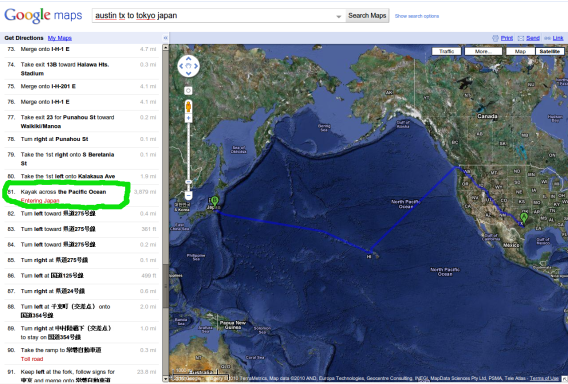So what happened to good old maps? We mobilised ’em.
Gone are the days when we whip out the A-Z from under the seat in the car or somehow manage to manoeuvre a Michelin road map the size of Russia in the front seat of a Peugeot 206. Although my good ol Grandpa still has his maps handy, but i don’t know how he does it.
This is a prime example of how our life has been directly affected by mobile technology. Map reading and map drawing is a very complicated task and one which takes alot of time and skill, but it is being driven out of our society by digital maps and Sat Nav systems.
Ok, so there are good points to this, of course. I for one think the digital maps are excellent and provide an easy and simple way to navigate our way around which saves me alot of time on the phone to my girlfriend when she’s lost. However what does worry me is how disconnected it can make us feel from our surroundings. We have got ourselves to the point where you stop noticing the features and the landmarks around us and rely on the little blue dot. When our sense of direction becomes so diluted that following the dot or the triangle becomes our method of navigation, it spells worrying times.
What i feel we need to retain is that natural sense of knowing where your going. Knowing that you just ain’t going the right way and having that confidence and connection to things around you to know how to get yourself out of trouble. Whether that be by the stars, the sun, the earth’s magnetic field or simply taking a punt, then it’s still progress over that reliance on mobile technology to solve all of our problems.







